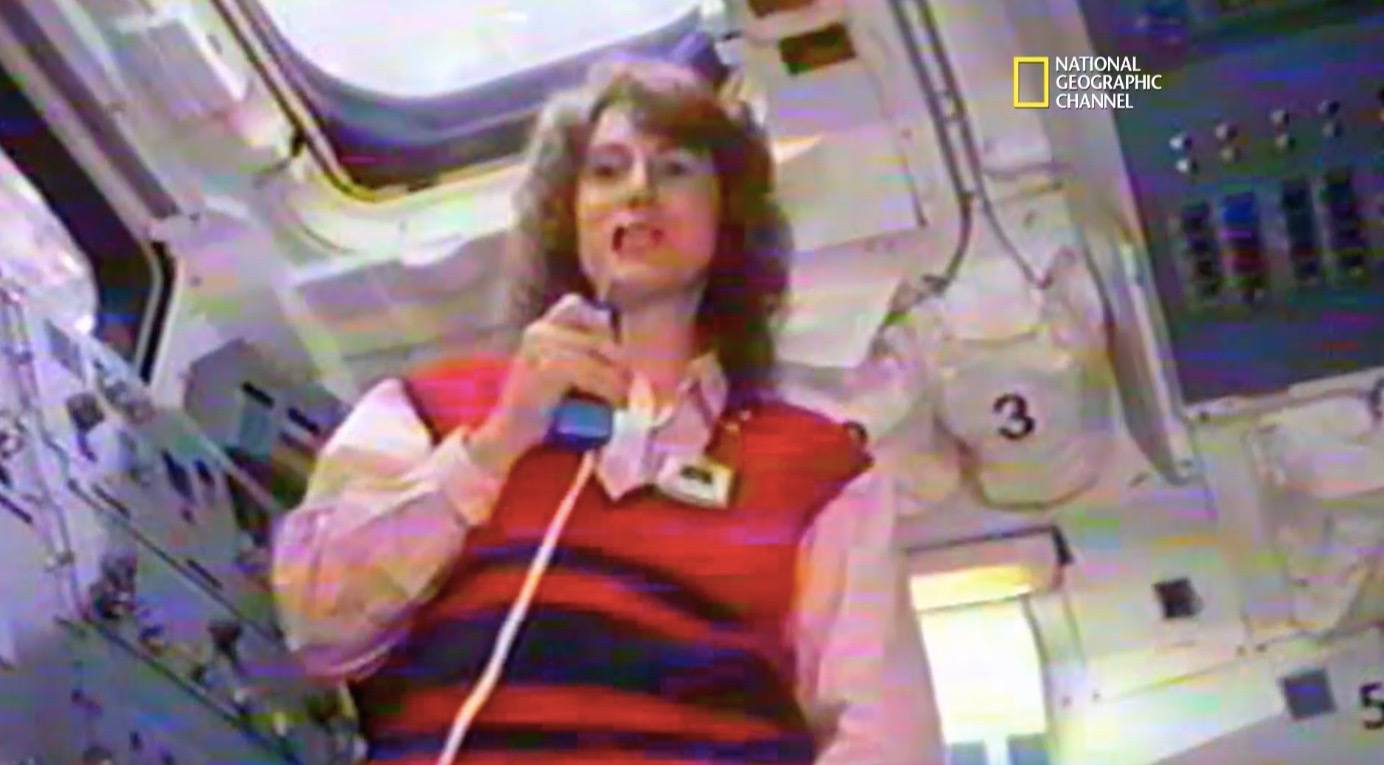
A powerful new documentary takes a fresh look at the space shuttle Challenger explosion, a tragedy that is still seared into the minds of a generation 30 years after the smoke cleared.
The National Geographic Channel's hour-long "Challenger Disaster: Lost Tapes" will premiere Jan. 25, three days before the 30th anniversary of the accident that claimed the lives of seven astronauts, including New Hampshire teacher Christa McAuliffe. But you can get a sneak peak at the documentary now in this 3-minute teaser video, which the National Geographic Channel provided exclusively to Space.com.
The teaser opens with the 37-year-old McAuliffe, who had beaten out thousands of other applicants for the chance to become the first American civilian in space, practicing a lesson she planned to beam down to schoolkids from orbit. [Challenger Remembered: Photos from NASA's Tragic Shuttle Disaster]
"Good morning," McAuliffe says in the video, clearing her throat. "This is Christa McAuliffe, live from the Challenger, and I'm going to be taking you through a field trip."
"Challenger Disaster: Lost Tapes" proceeds in this fashion, relying on contemporary audio and rarely seen footage rather than voice-over narration to tell the story of the doomed shuttle mission. For example, the documentary features, among other things, NASA interviews with McAuliffe, candid video of the teacher touring Challenger with her husband and two children, and behind-the-scenes footage of Vice President George H.W. Bush and Ohio Senator (and former Mercury mission astronaut) John Glenn talking to members of the Challenger launch team just hours after the tragedy.
Challenger exploded 73 seconds after blasting off from NASA's Kennedy Space Center in Florida on Jan. 28, 1986, killing commander Dick Scobee; pilot Mike Smith; mission specialists Judy Resnik, Ellison Onizuka and Ron McNair; and payload specialist Greg Jarvis, in addition to McAuliffe (who was a payload specialist as well).
An investigation later determined that a rubber seal called an O-ring in the shuttle's right-hand solid rocket booster failed during liftoff, allowing hot, high-pressure gas to escape. This gas damaged the shuttle's huge external fuel tank, as well as the gear that attached the booster to the tank.
Get the Space.com Newsletter
Breaking space news, the latest updates on rocket launches, skywatching events and more!
Cold weather played a role in the O-ring's failure, investigators found.
The space shuttle program was grounded for nearly three years in the wake of the disaster, finally lifting off again with the orbiter Discovery's return-to-flight STS-26 mission on Sept. 29, 1988. And Challenger wasn't the only shuttle ever lost during flight; the orbiter Columbia broke apart upon re-entering Earth's atmosphere on Feb. 1, 2003, killing all seven astronauts aboard.
"Challenger Disaster: Lost Tapes" premieres on Jan. 25 at 9 p.m. ET/8 Central. The documentary will also air on National Geographic Channels in 171 countries in 45 languages, and in Spanish on Nat Geo Mundo, network representatives said.
Follow Mike Wall on Twitter @michaeldwall and Google+. Follow us @Spacedotcom, Facebook or Google+. Originally published on Space.com.
Join our Space Forums to keep talking space on the latest missions, night sky and more! And if you have a news tip, correction or comment, let us know at: community@space.com.

Michael Wall is a Senior Space Writer with Space.com and joined the team in 2010. He primarily covers exoplanets, spaceflight and military space, but has been known to dabble in the space art beat. His book about the search for alien life, "Out There," was published on Nov. 13, 2018. Before becoming a science writer, Michael worked as a herpetologist and wildlife biologist. He has a Ph.D. in evolutionary biology from the University of Sydney, Australia, a bachelor's degree from the University of Arizona, and a graduate certificate in science writing from the University of California, Santa Cruz. To find out what his latest project is, you can follow Michael on Twitter.









